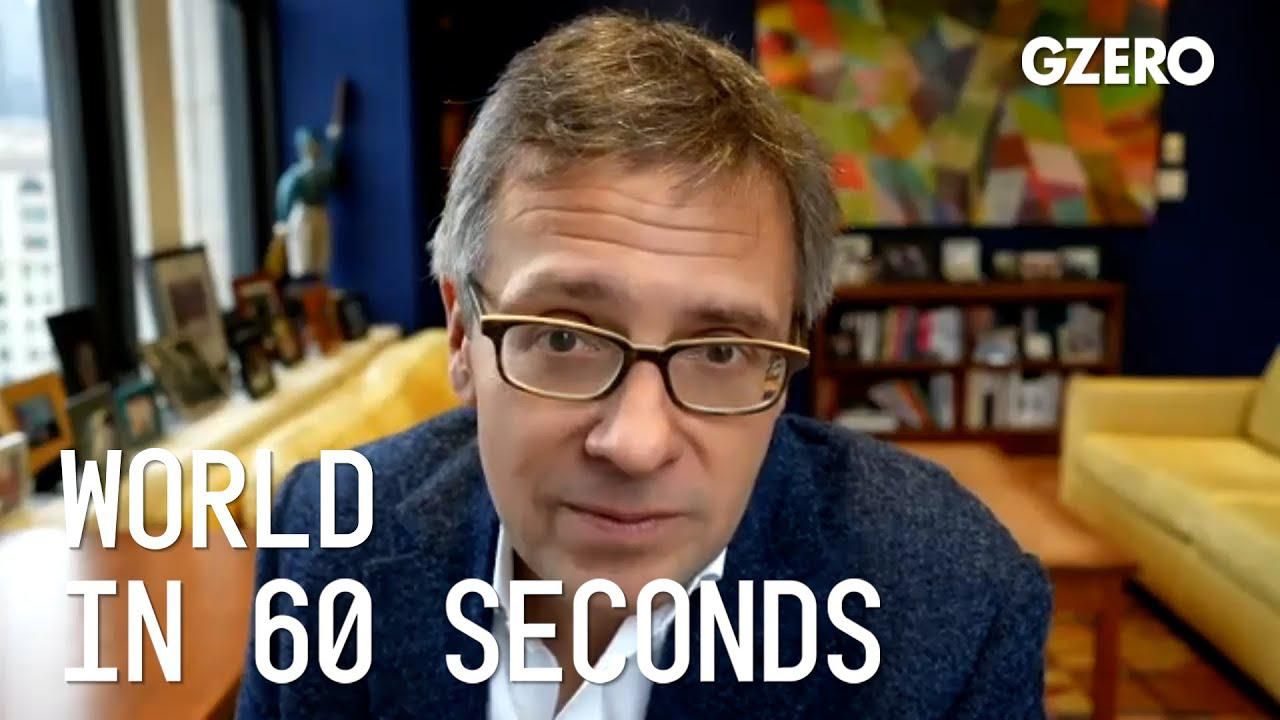Ian Bremmer shares his insights on global politics this week with a look at the omicron variant, the Honduras presidential election, and the pros and cons of getting stuck in a UK pub for three days in a snowstorm.
As the omicron variant emerges, is a return to lockdown next?
The answer is, only in a few play places, because people are exhausted from lockdowns. They're angry with their governments from doing it. Governments are going to be very reluctant to have the economic hit as a consequence, especially when they know they can't pay out the relief money that they've been paying over the last couple of years, and they're not yet sure about just how much of a danger omicron is. I think all sorts of travel restrictions, but unless and until you see that the spread starts leading to significant lethality, hospitalizations, and once again, the potential for ICUs to be overwhelmed, I do not expect many significant lockdowns that are countrywide at this point. Not least in Sub-Saharan Africa, where the populations are very young and as a consequence, you can have a lot of spread and they're not paying attention to it, frankly.
Will the Honduras presidential election have wider regional implications?
Just had this election. It looks like the first female president ever they're going to see win, Xiomara Castro, who is up by some 20 points. They are still saying, fake news, and they're challenging, they're contesting it. The big issue is what happens with immigration, and will this government be willing to work more closely with the Mexicans, with the Biden administration? Because after Mexico, the largest number of illegal immigrants picked up going across the wall, coming from Honduras to the United States. That's a big issue. Of all the countries in the region, El Salvador has been a disaster to work with. Guatemala has been a little easier. Honduras has been in between. Really, really tough to get enough support on the ground that you can try to limit what is enormously dangerous country and people just trying to get the hell out.
A snowstorm left dozens stuck in a pub for three days in the UK. Good time or great time?
Well, I don't know. I mean, most people I know in the UK would say getting stuck in a pub for a few days is an awesome time in the snow. You're not going to do anything anyway. It's not like you're working. You can work digitally, I know everybody's got their phones, so if they need to, they can, right? Who knows if they actually had streaming services at the pub. Apparently it was this Oasis tribute band. What could be better than that? Your wonderwall of snow. I don't know. I'm glad it wasn't me.
- Key questions about the omicron variant - GZERO Media ›
- Don't jump out the omicron window - GZERO Media ›
- Bukele's Bitcoin gamble in El Salvador - GZERO Media ›
- What We're Watching: Honduras bracing for post election upheavals ... ›
- Biden and Putin hold virtual meeting as US-Russia tensions increase - GZERO Media ›
- Omicron will be home for Christmas - GZERO Media ›
- Omicron will be home for Christmas - GZERO Media ›
More For You
In this Quick Take, Ian Bremmer addresses the killing of Alex Pretti at a protest in Minneapolis, calling it “a tipping point” in America’s increasingly volatile politics.
Most Popular
Who decides the boundaries for artificial intelligence, and how do governments ensure public trust? Speaking at the 2026 World Economic Forum in Davos, Arancha González Laya, Dean of the Paris School of International Affairs and former Foreign Minister of Spain, emphasized the importance of clear regulations to maintain trust in technology.
Will AI change the balance of power in the world? At the 2026 World Economic Forum in Davos, Ian Bremmer addresses how artificial intelligence could redefine global politics, human behavior, and societal stability.
Ian Bremmer sits down with Finland’s President Alexander Stubb and the IMF’s Kristalina Georgieva on the sidelines of the World Economic Forum to discuss President Trump’s Greenland threats, the state of the global economy, and the future of the transatlantic relationship.
